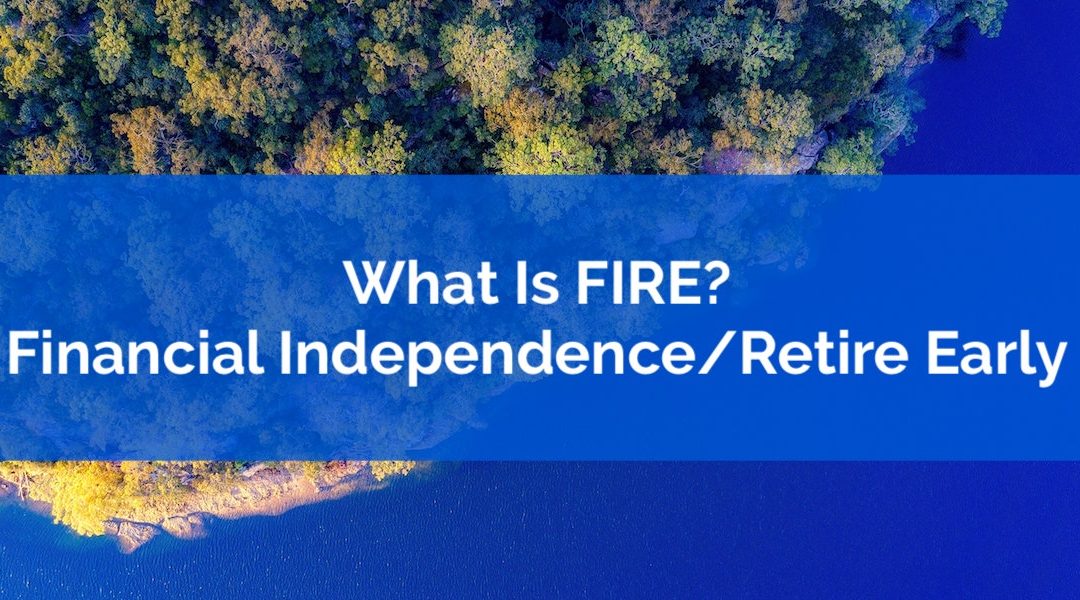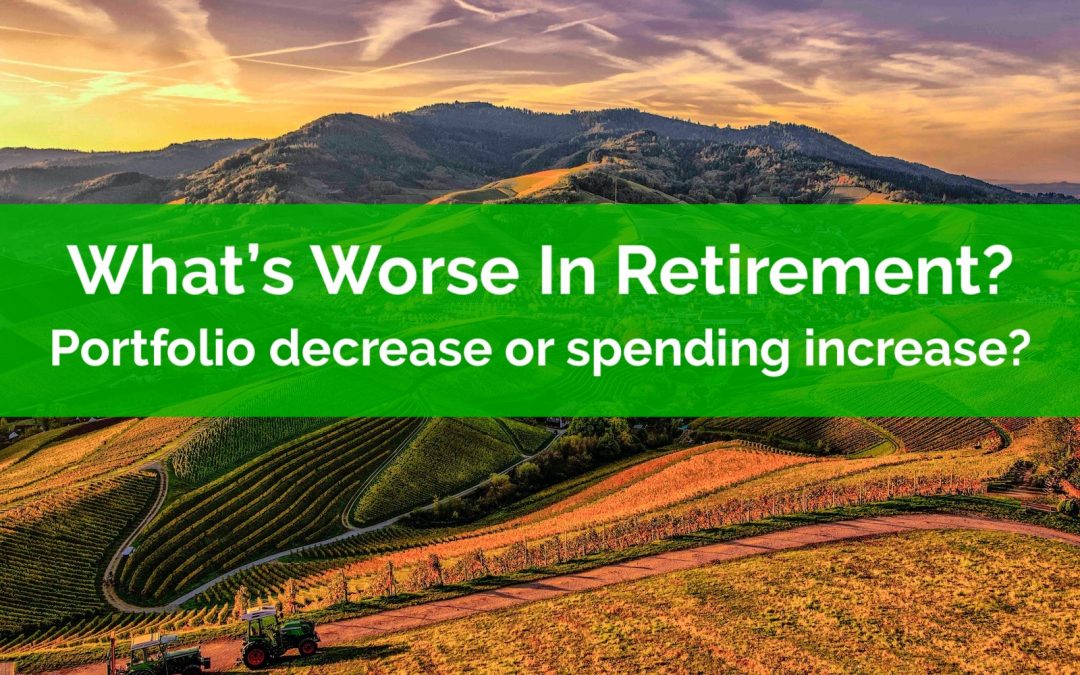
by Owen | Apr 24, 2023 | Behavioral Finance, Buying A Home, Financial Planning, Government Programs, Investment Planning, Retirement Planning, Tax Planning
The largest financial transaction you will ever make is selling your home in retirement. Selling your home in retirement comes with a number of important considerations.
In this blog post we’re going to touch on 9 important things to consider when selling your home in retirement.
Selling a home in retirement can be a core part of many retirement plans. A sale usually takes one of three forms…
– Sell and rent
– Sell and downsize
– Sell when entering long-term care
Often the plan is to hold the home throughout retirement, but it can still be used as a “fall back” asset if necessary. Even if there was never a plan to sell the home, it can still be used to help fund long-term care costs in late retirement.
Each situation above has its unique circumstances but, in all cases, there is a major transaction taking place. So, before you put up the ‘for sale’ sign in retirement there are a few important considerations to highlight.

by Owen | Mar 19, 2023 | Behavioral Finance, Budgeting, Emergency Fund
Some surprises are great… but one surprise no one likes is an unexpected expense. An unexpected expense can wreak havoc on your personal finances. Unfortunately, unexpected expenses are extremely common, especially for those who own homes and vehicles.
For those of us who own large depreciating assets like vehicles, homes, boats, RVs etc., planning for unexpected expenses is an important financial habit. We need to prepare for future repairs and upgrades, even if they’re not entirely predictable.
At PlanEasy we call these types of expenses “infrequent expenses”. Unlike your regular monthly bills, infrequent expenses are not regular and are much less predictable. It’s hard to predict both the size and timing of infrequent expenses but they are still expenses that we need to prepare for.
If you own a depreciating asset like a home or vehicle then you can be guaranteed to have some large expenses in the future. To prepare for these expenses you need to set aside a certain amount of money each month, otherwise you’ll feel a nasty cash flow pinch in the future, or in a worst-case scenario, end up in debt. For those with a large home and 1-2 vehicles, setting aside $500 to $1,000+ per month is a pretty common goal. How much are you setting aside for infrequent expenses? Is it enough?
To manage these infrequent expenses, we can use a “fund” or “funds”. A fund is a small pot of money that you contribute to regularly. It’s set aside in a high-interest savings account and waits there ready to help when these types of expenses occur. We don’t like to think of this as savings, and its not an emergency fund, this is future spending that just hasn’t quite happened yet.

by Owen | Jan 30, 2023 | Behavioral Finance, Budgeting, Financial Goals, Financial Planning, Income, Investment Planning, Retirement Planning, Saving Money
You may have noticed a new term starting to creep into the mainstream financial media, that term is FIRE, and you might be wondering, “What the heck is FIRE? And how is it related to personal finances?”.
FIRE is an acronym that stands for Financial Independence/Retire Early. The basic idea is that if you pursue FIRE you can eventually stop working for money. You can be financially independent. You can do anything, retire early, keep working, volunteer, basically you can have more freedom.
The idea is that with enough savings/investments you’ll eventually reach the point where you can live off your investment income indefinitely. Once you reach this point you’re considered financially independent, you no longer NEED to work for an income, and can retire to a life of leisure (although you may choose to continue to work, change roles/professions, start a business, or volunteer).
While the concept of early retirement sounds amazing, it does take quite a bit of focus and determination to get there. To reach FIRE it requires a high savings rate, very high.
The typical financial advice given to the public is to save and investment approximately 20% of your net income (part of the simple 50/30/20 budget).
But to reach financial independence retire early you need to save more, much more. To reach FIRE you need to have a savings rate somewhere in the 30%-70%+ range. The higher your savings rate the faster you can stop working for money.
Because it’s easier to reach financial independence/retire early with a high savings rate, the path to FIRE is made easier with an above average income. With an above average income, basic expenses are easily covered, and it becomes more about managing lifestyle inflation. People who pursue FIRE try to limit their lifestyle inflation to maintain a high savings rate.
FIRE is also possible with a below average income, but requires a lot of creativity to reduce basic expenses. This may include house hacking, avoiding car ownership, and more extreme lifestyles. To reach financial independence/retire early with a low-income you need to live an alternative lifestyle.
Reaching FIRE is one of those extreme personal finance goals, it’s a goal that isn’t for everyone.
Even though the end goal sounds appealing, it requires a lot of hard work and dedication along the way. Reaching financial independence retire early means living way below your means for the rest of your life. It’s a lifestyle more than it is an end goal. It’s a lifestyle with a lot of freedom, but it’s also a lifestyle that requires a lot of control.
If you’re able to control your spending, and save a large % of your income, then reaching financial independence might only be a few years away.
To find out how far away you are from financial independence you can make a copy of our FIRE calculator and quickly calculate how many years it will take to reach FIRE in your situation. It will help you estimate how many years from FIRE you are based on your net-income, current expenses, and existing savings.
We’ve used our FIRE calculator to create four examples of how to reach FIRE.

by Owen | Jan 16, 2023 | Behavioral Finance, Budgeting, Financial Goals, Financial Planning, Get Out Of Debt, Income
Goals are a fantastic way to motivate yourself. Having a big, ambitious goal will help you prioritize other things in your life. It gives you something to work toward. Something that you care deeply about. It helps you balance what you need today with what you want to achieve in the future.
Financial goals have made a huge difference in my life. Setting powerful financial goals has helped me focus on the things that matter to me and ignore the things that don’t. They’ve helped me prioritize my spending to better align with my short and long-term goals.
Because of these financial goals, I’ve cut $1,000’s per year in wasteful spending. Spending that really didn’t provide much value to me. Spending that was mostly driven out of habit. Spending that I’d gladly cut in favor of my long-term goals.
Once you have a financial goal then you have to track it. And this can be a challenge on its own.
One thing that helps me reach my financial goals (or any goal for that matter) is to track my progress visually.
Maybe I’m a visual person but I find it helps me to “see” where I’ve come from and where I’m going. It’s super motivating to see that I’m hitting my monthly goals and that I’m on track to hit my long-term goal.
There are a few different ways to visualize your goals. I’m going to share my three favorite visualization techniques with you.

by Owen | Jan 9, 2023 | Behavioral Finance, Budgeting, Financial Planning, Get Out Of Debt, Retirement Planning, Saving Money
When it comes to personal finance there are many different milestones and each one is its own individual achievement. Personal finance is full of achievements you need to ‘unlock’ to be successful. The more achievements you unlock, the more successful you’ll be at building wealth.
To ‘win’ the money game you need to hit a certain number of milestones along the way. Some achievements are required before you can move forward in the game. Others enable you to accelerate your wealth even faster. And then there are some achievements that are just interesting check points along the way.
Here are 30 personal finance achievements you need to unlock!
How many have you unlocked already?

by Owen | Nov 21, 2022 | Behavioral Finance, Budgeting, Financial Planning, Investment Planning, Retirement Planning
A large decrease in portfolio value is a common concern when entering retirement. After all, seeing a large chunk of your retirement portfolio evaporate over just a few months can be quite disconcerting.
But… a large spending increase should be much more concerning in retirement.
If you had to guess, between a 20% drop in portfolio value and a 20% increase in spending, what is worse for a retirement plan?
It feels like a large stock market correction of 20%+ is the worst thing that can happen in retirement. After all, for an average retirement portfolio, a 10-20% drop could equate to a portfolio decline of $50,000 to $200,000+. That’s a large amount of money!
But a permanent increase in retirement spending should be much, much more concerning.
An increase in retirement spending of 10-20% is significantly worse than a 10-20% portfolio decline. Let’s see why…






